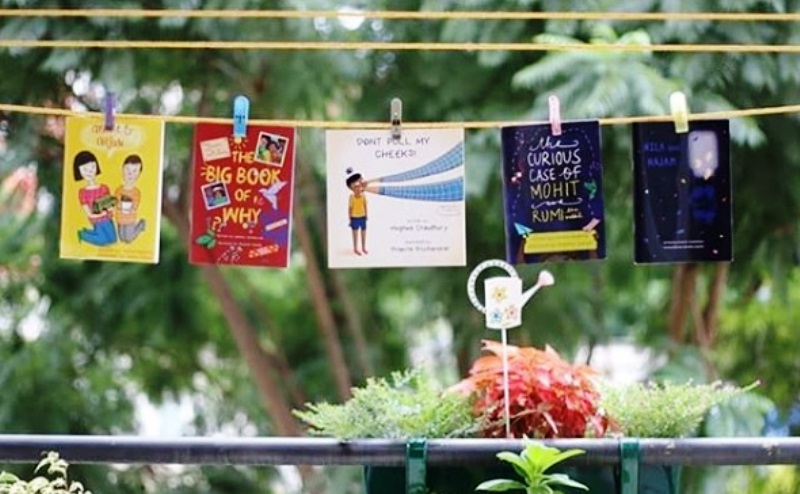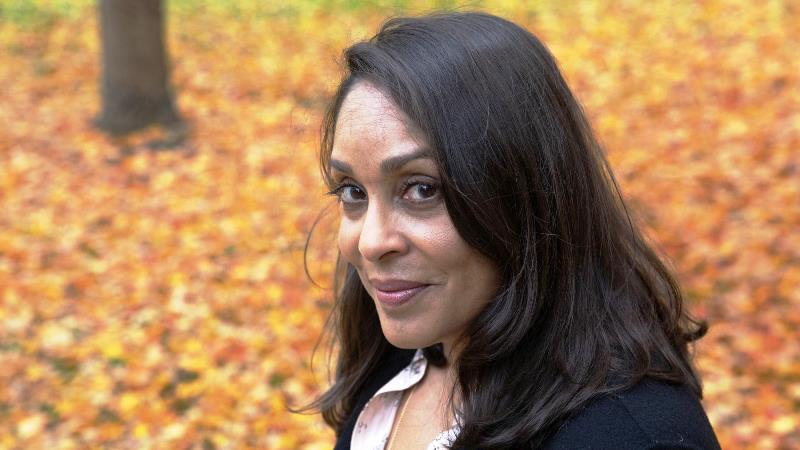The Irrelevant Project (TIP) is a team of everyday feminists, deeply determined to create an inclusive world for little children to grow up in. They aim to reduce negative stereotypes in multiple learning realms, by empowering children to resist the script of biases by developing awareness and critical thinking in them, through the medium of fiction.
They are the Avengers we need! 
Last week, I spoke to Alishya Almeida and Meghna Chaudhury, the founders of TIP. You can read the interview here:
RR: ‘The Irrelevant Project’; first of all, explain this super unique name to us!
TIP: The name works for us because of the way we adapt to the classroom. The project doesn’t hold meaning in itself, but becomes an experimental conduit to allow for all stakeholders including us, the potential for critical thinking in different spaces of learning.
RR: How did you come up with this idea of disrupting stereotypes, and how did it take shape to finally form TIP?
TIP: Constant creation is part of being human, and this creating very much includes the ideas we have of ourselves. We categorize each other based on identities that rest on class/gender/caste/religion to have a sense of order. Unfortunately, in living these identities, we frame an us and them, developing stereotypes to tell each other apart.
Stereotypes flatten our understanding of people, and that’s where we wanted to start. We began with running a few workshops with children, and reading research, and this set off the TIP journey.
RR: To what extent do you think children’s books perpetuate stereotypes that they imbibe over time? Can you give us a few examples (generic and/or specific)?
TIP: Growing up, our education comes from everywhere, and not just the classroom. Children are witness to the way adults interact with each other, as well as their peers. They reproduce stereotypes because that’s how they believe the world to be. For example, boys make fun of each other when one of them “acts like a girl” or girls are taught to be extra polite all the time and are never allowed to feel fully sure of themselves when they speak up. So in the classroom, the girls are more likely to begin statements with “I’m sorry if this may be wrong” or “I could be wrong but…” or “I’m not sure about this…”
RR: What are your thoughts on the current education system? Do you think it is equipped enough to explain the everyday struggles surrounding gender, culture, caste, religion etc.? Do you have a set of suggestions for the educationists of our country?
TIP: The current education system is a myriad of various education systems backed by thought and curriculum running in different schools. Many private and alternative schools are also developing and using advanced material in their classrooms which is great, because we need children to develop thinking from a young age. In many government schools depending on location, there is definitely a need for funding and resources. Everyday struggles could run a range from having access to funds to build infrastructure like labs and toilets or buy books, to finding support and education resources for the teachers in the classroom. More than educationists, it’s also for people to realize education plays a huge role in how we change as an economy. It is the educationists that need more support from the public with finance and resources to ensure children get a robust education.
RR: Apart from books, through what other means do you think children unlearn kindness over time? What do you suggest is the role of parents in curbing these negative changes in their kids?
TIP: Everyone needs to be taught kindness. Rather than focusing on kindness, it might be better to develop critical thinking and emotion reasoning in children so that they grow up into perceptive adults that respond with kindness in complicated situations instead of fear and hate.
RR: What, according to you, are the undesirable effects of media which constantly tries to reinforce restrictive narratives that push only particular ways of thinking? How do you suggest this ought to change? How is TIP placed to change such restrictive narratives?
TIP: Media is a way to decode how we structure society, and understanding patriarchy is necessary to see how scripts for gender, religion, and caste are constructed in its framework. When harmful stereotypes are perpetuated in media, it gathers a culture of hatred that is not necessarily visible. However, we do have to take the spate of attacks on minorities, women and children in this country very seriously and interrogate its relation to how both language and visuals in media influences the way we behave. More than placed, at TIP we respond to the queries and challenges we face by being invested in the possibilities in the realm of fiction. Change is necessarily a product of collective action, and we hope to develop practices that interrogate restrictive narratives and add strength to cultural change and resisting oppression.
RR: Tell us a little about the five children’s books you have come out with and the concepts that they are dealing with? How well have they been received?
TIP: Perhaps the most heartening thing for us has been to receive encouragement and hope from people who are reading the books, or come across the books and our posts online. From what we understand, there’s a need for more content like this that speak explicitly to the kinds of diversity we inhabit in India.
These are our titles, and a snippet about them:
The Big Book Of Why follows the story of Anvesha, who receives a notebook from her grandfather who encourages her to write down the questions she has of the world. Questing norms and asking about the way things work is important for children.
The Curious Case Of Mohit and Rumi the Rabbit is a heartwarming story of a friendship between Rumi the rabbit and a boy named Mohit. Mohit is bullied for his weight constantly, and is upset till he meets Rumi. Their friendship changes Mohit, who begins to understand that he is more than what he is called, and that he has several talents and a stunning personality.
In Nila and Najam, we meet Nila and Najam, twins who are ambitious and full of imagination. They have their dreams for the future, and speak to each other about how might it be possible to achieve them. This story puts pressure on how we assign gender stereotypes to various professions by depicting how children might already understand their strengths, and what might be possible when one pursues their passion.
Don’t Pull My Cheeks!’ is about a young boy named Bibloo who learns how to say “NO” to touch from people because he does not like it. Through different strategies, Bibloo also learns to tell adults that they need to ask if they want to pinch his cheeks, pick him up, etc. thereby also giving the adults an education in consent.
Annie & Arjun is about a pair of siblings who want more time in the day to play with each other after they complete their household chores. However, they are assigned to duties that they don’t like and the two of them become unhappy with this situation. Arjun and Annie cleverly come up with a plan to reassign and swap tasks to do what they prefer, and keep their parents happy!
RR: How did you make sure that TIP’s children’s books were free of stereotypes? What methods did you employ to ensure this?
TIP: Perhaps it isn’t possible to be free of stereotypes. There’s a way in which language shapes the realities we produce, and to get to a time in which differences between people don’t matter in society calls for a lot more critical undertaking.
With the books, the primary motive was to encourage children to start thinking about the world they live in. We were pretty much appalled by many of the children’s books and video content we were reading/viewing. The girls in these stories are fair and petite, and given boring roles in the story. For the boys their mission is to save, giving them the script of a hero without investing in them a capacity for emotions and self-doubt. Our method is simple: to have our characters situated closer to reality and steeped in everyday adventures that allow children to step into a realm of fiction where possibilities are continuously drawn for themselves.
RR: How do you think the society needs to evolve in order to be rid of such stereotypes once and for all?
TIP: That’s a good question. TIP intends to build practices that might be useful to unpacking this question in the long run. For now, it seems likely that understanding each other rests on dialogue and listening, and are necessary tools to challenge harmful stereotypes.
RR: Is it difficult to find collaborators to work with you on this mission? What is your message to the people who want to contribute or be a part of your project?
TIP: We are pursuing several collaborations at this point. There’s a brilliant synergy between educators all over the country, and the conversations we are having with other projects are testimony to the drive that motivates passionate individuals in this field.
We would love support by spreading the word about our books! This is a project run and made possible by many capacious and dedicated individuals all over the country, and we need to finance our continuous work of research and our activities. Apart from this, we are always looking for projects to work with, and people to contribute in meaningful ways through reading, analysis and writing.
RR: What are you currently working on?
TIP: We are currently developing material for classrooms while being in conversation with educators about what’s needed for their classrooms. We are also running workshops not necessarily for children because everyone could use a little bias mapping. And we are constantly reading for growth, dialogue and research.
RR: What’s next for TIP?
TIP: Now you’re asking us to give away surprises we are keeping for later. 
Some of our future endeavors shall revolve around generating pedagogical tools through collaborations and research, and hands-on workshops, and if our hard work pays off, then more titles in our fiction adventures.
We at NLT wish The Irrelevant Project all the best in their creative efforts to interrupt various kinds of prejudice in society. More power to the folks!
Featured image source: Instagram/ The Irrelevant Project













